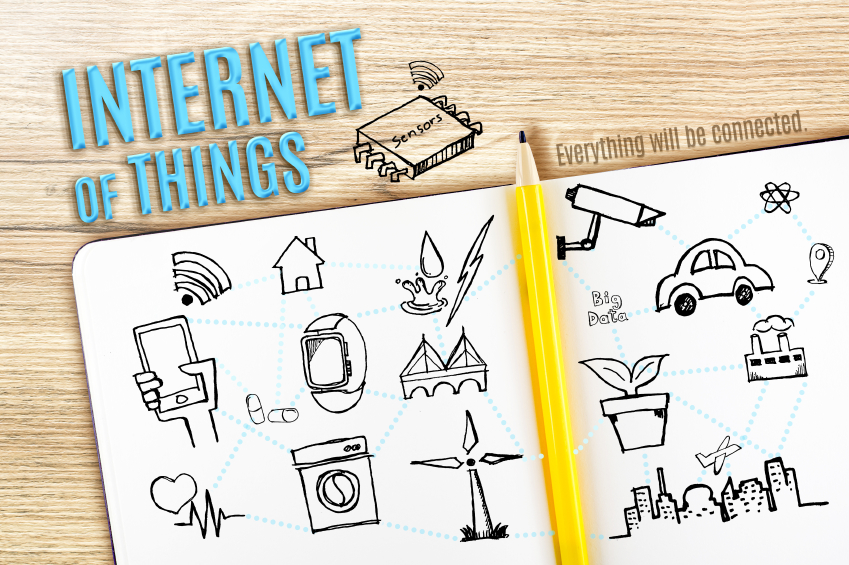The Internet is now an integral part of our daily lives and wewould struggle to imagine life without it. However, growth haslargely been driven by access to content and speed.
|We are now moving into the new phase of growth where theeveryday "things" around us will be connected to the Internet. Thisis the Internet of Things (IoT). It will have a profound impact onour daily lives and change the way we interact with ourenvironment.
|The IoT will also have a big impact on way industriesoperate and relate with their customers. This is particularly truefor insurance companies where there is an opportunity to move frombeing passive and reacting to losses to helping prevent them.
|In short, the IoT will be a game changer forinsurers.
|The smart home is already going mainstream. Big-box stores suchas Lowe's, Home Depot, Best Buy, Target and Sears have started tooffer their own do-it-yourself smart-home products. They arecompeting with the major service providers such as AT&T,Comcast, Time Warner Cable and others who have developed their ownconsumer offerings. The entry of Apple, Google and Microsoft intothe segment with different consumer strategies is a clear sign thatthe market has arrived.
|Many of these new entrants have recognized that data will be keyto their success in a connected world where devices will generateas much as we can handle, and the ability to refine and exploit itwill decide the winners and losers in many industries.
|This data is going to be particularly important to insurers whohave traditionally based their pricing on risk assessment. So, if acompetitor has better data on which to base their judgements, theywill have the edge.
|The IoT and access to data will reshape industryboundaries and create new opportunities. The IoT willallow insurance companies to move from the traditional passive roleof underwriting risk to take a more active position by supplyingsmart-home products and services.
|Other industries have already adopted this type of strategy. Forexample, the major cable and telecommunication companies now offersmart-home products on top of their broadband services. Theseprovide new revenue streams, leverage their core competencies,increase customer loyalty and provide a platform for growing newvalue-added services.
|Insurance companies could take a page out of the serviceproviders' playbook and offer their own solutions to realizesimilar benefits.
|Continue reading …
||
(Photo: iStock)
|Opportunity for insurers
Entering the IoT and smart home would give insurers amore direct relationship with the consumer through dailyinteraction using touch points in apps and messaging. Insurerscould also become more competitive by adopting pricing strategiesthat include direct sourcing and bundling with policies. Contrastthis to consumers' traditional negative experience of bill payingon an annual or semi-annual basis for something they most likelydidn't use.
|Consumers would see insurance companies as a logical source forproducts and services that protect people and their property.Smart-home systems can be do-it-yourself offering protection forsecurity, fire and flood. Additionally, they bring new levels ofprotection with innovation. By partnering withIoT companies, insurers can leverage technologies such asconnected water leakage detectors and temperature sensors tocontinuously monitor customers' homes. These technologies providehomeowners with early warning signs and the ability to act quicklyin the case of an adverse event, allowing insurers to bettermitigate risks and reduce losses for customers.
|If providers are hesitant to step outside of traditionalindustry boundaries, the alternative is to forge new partnershipswith the companies that are deploying smart-home solutions. Thesecompanies have access to the data that will help insurancecompanies manage risk.
|For example, Lowe's has partnered with a number of insurancecompanies to trade data from the Iris smart-home system. Becausedata privacy is a major issue, customers have to approve sharing.This can be achieved by offering a benefit on the policy, usuallyin the form of a discount.
|Clearly, the IoT market is moving extremely fast andwill challenge conventional wisdom. Just five years ago, the onlyconnected device in home improvement retail was a smart door lock,and now there are hundreds — even dog bowls and toothbrushare becoming connected. If the IoT grows as predicted, everypowered device will be IP addressable in the next 10 years.Ignoring this market is not a smart move.
|While competing in the smart-home market by offering consumersnew products and services may seem daunting, the IoT will disrupttraditional industry boundaries, and attack is sometimes the bestform of defense. Moreover, actively entering the market has thebiggest upside. At a minimum, there is a need to find ways topartner to protect your position and get access to data to remaincompetitive.
|The leading insurance providers will be those who embrace theIoT and its impact.
|Opinions expressed in this article are theauthor's own.
Want to continue reading?
Become a Free PropertyCasualty360 Digital Reader
Your access to unlimited PropertyCasualty360 content isn’t changing.
Once you are an ALM digital member, you’ll receive:
- All PropertyCasualty360.com news coverage, best practices, and in-depth analysis.
- Educational webcasts, resources from industry leaders, and informative newsletters.
- Other award-winning websites including BenefitsPRO.com and ThinkAdvisor.com.
Already have an account? Sign In
© 2024 ALM Global, LLC, All Rights Reserved. Request academic re-use from www.copyright.com. All other uses, submit a request to [email protected]. For more information visit Asset & Logo Licensing.








